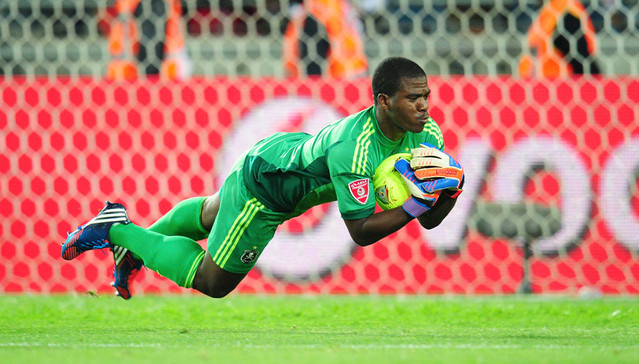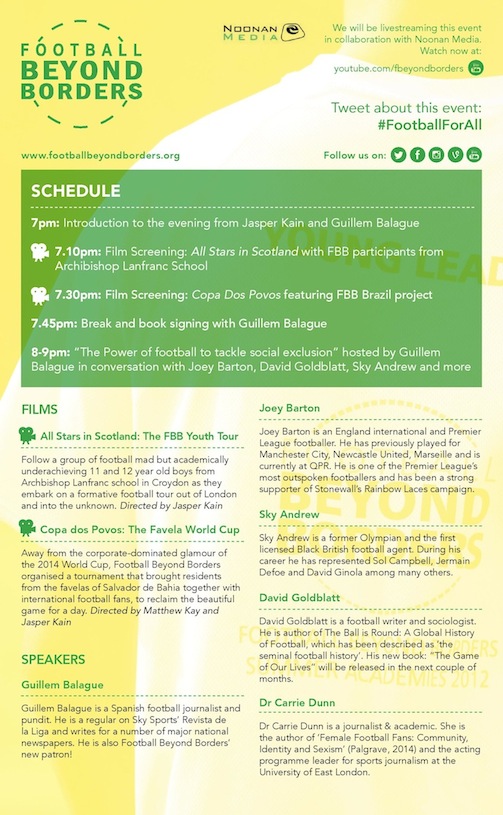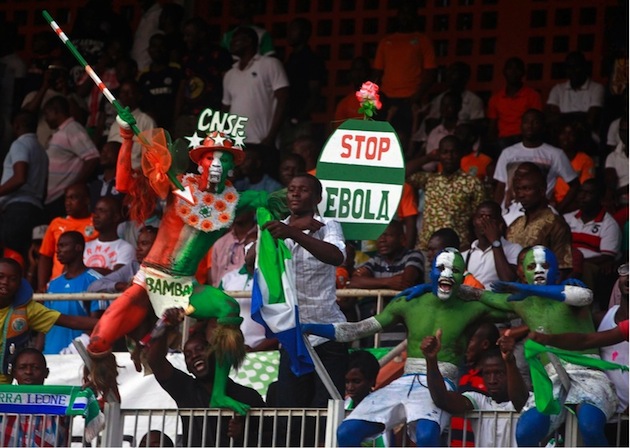Just two days after former 800m world champion Mbulaeni Mulaudzi died in a car crash, South Africa mourns the death of another sport celebrity. 27-year-old Senzo Meyiwa, captain of Orlando Pirates and South Africa, was shot and killed on Sunday evening during a robber at his partner’s home in Vosloruus, East Rand.
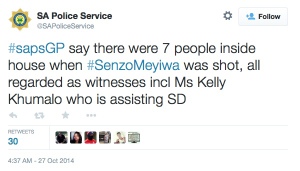 According to initial reports, two armed men entered the home of actress and singer Kelly Khumalo and demanded cash, cell phones, and valuables from seven people. An altercation ensued and one of the assailants shot Meyiwa once in the chest. The player was pronounced dead on arrival at the hospital.
According to initial reports, two armed men entered the home of actress and singer Kelly Khumalo and demanded cash, cell phones, and valuables from seven people. An altercation ensued and one of the assailants shot Meyiwa once in the chest. The player was pronounced dead on arrival at the hospital.
Kick Off magazine reported on its website that “News of the shooting prompted widespread sympathy on social media and condemnation of South Africa’s rampant gun violence.”
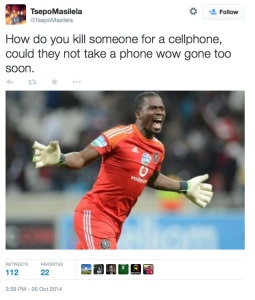 Tsepo Masilela, a Bafana Bafana teammate of Meyiwa’s, seemed to capture the shock of many when he tweeted: “How do you kill someone for a cellphone?”
Tsepo Masilela, a Bafana Bafana teammate of Meyiwa’s, seemed to capture the shock of many when he tweeted: “How do you kill someone for a cellphone?”
The South African Police Service (@SAPoliceService) offered a R150,000 reward for information leading to an arrest.
Chris Thurman, an academic and editor of Sport versus Art, summed up the horrible past days for sport in South Africa via Twitter: “RIP Mbulaeni Mulaudzi & Senzo Meyiwa. Men who offered South Africans two of the best features of our story, struck down by two of the worst.”
